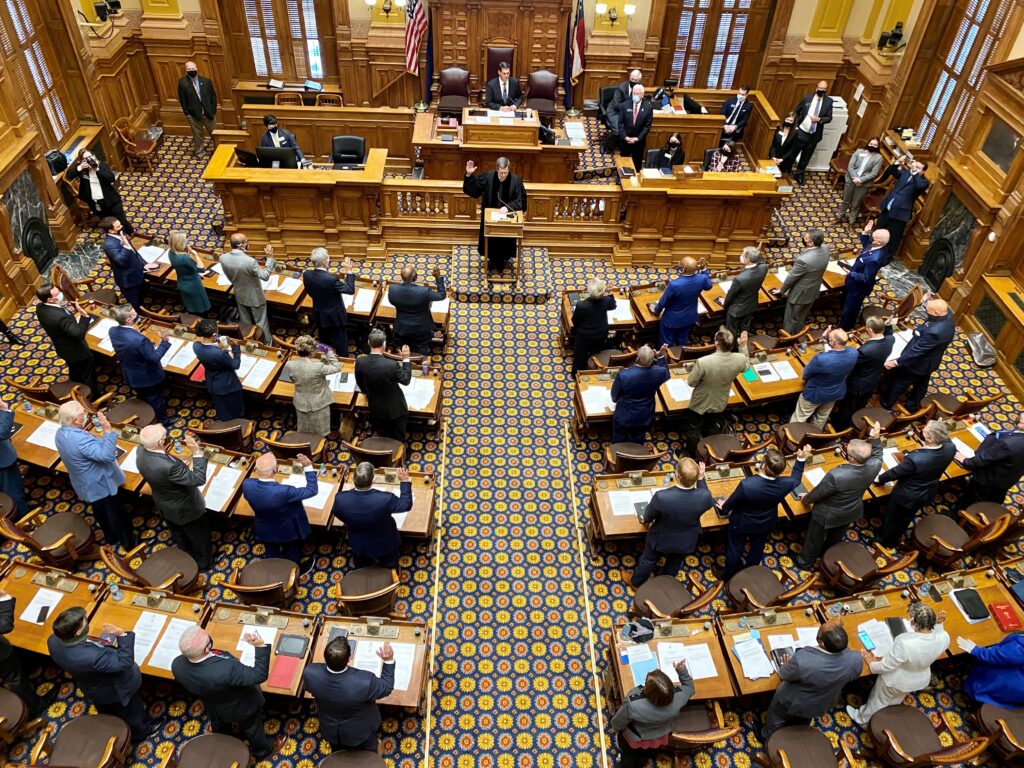
The Georgia Senate unanimously passed a $26.5 billion mid-year budget Tuesday to fund state-run public health, police and schools through June 30, adding more money for initiatives to fight the COVID-19 pandemic and boost broadband internet in rural areas.
The mid-year budget leans on federal COVID-19 relief funds to plug spending gaps in education, public health and other agencies.
The Senate version of the mid-year budget largely mirrors the spending recommendations Gov. Brian Kemp unveiled last month, which avoids imposing additional cuts after shrinking agency budgets by $2.2 billion last June due to the pandemic.
Along with no reductions, the mid-year budget restores more than half of the $950 million cut from K-12 public schools last year. The remaining shortfall will be covered with federal funds to keep school budgets stable.
State House lawmakers backed Kemp’s proposals to add $20 million for expanding broadband internet in rural Georgia, more than $38 million to buy 500 new school buses and $500,000 to jump-start the state’s new hemp farming and medical cannabis initiatives.
Senate lawmakers kicked in more money for state public-health officials to fight the pandemic, slotting in $27 million for epidemiology programs and a vaccine-scheduling system. Five new pandemic-focused jobs would be added to the state Department of Public Health, up from three jobs the House added.
The Senate-passed budget also hands the governor $7.5 million extra in emergency funds to battle the virus and would give state prison guards and juvenile corrections officers a 10% salary raise starting April 1, tapping into savings from eliminating vacant staff positions.
“I think this is a budget we can be proud of,” said Senate Appropriations Committee Chairman Blake Tillery, R-Vidalia. “It certainly is a lot better position than we were facing this time last year.”
Though it received unanimous approval, the budget drew criticism from Democratic state senators for not including more money for public-health services and leaving no room for lawmakers to raise revenue by clamping down on tax breaks and increasing the state’s cigarette tax.
“We believe – I believe – we should have done more,” said Senate Minority Leader Gloria Butler, D-Stone Mountain. “The politics of the day do not drive our best thinking and our best policy and budget-making decisions.”
The mid-year budget now heads back to the House for a final vote before heading to Kemp’s desk for his signature. Lawmakers will then set to hammering out a budget for fiscal 2022.